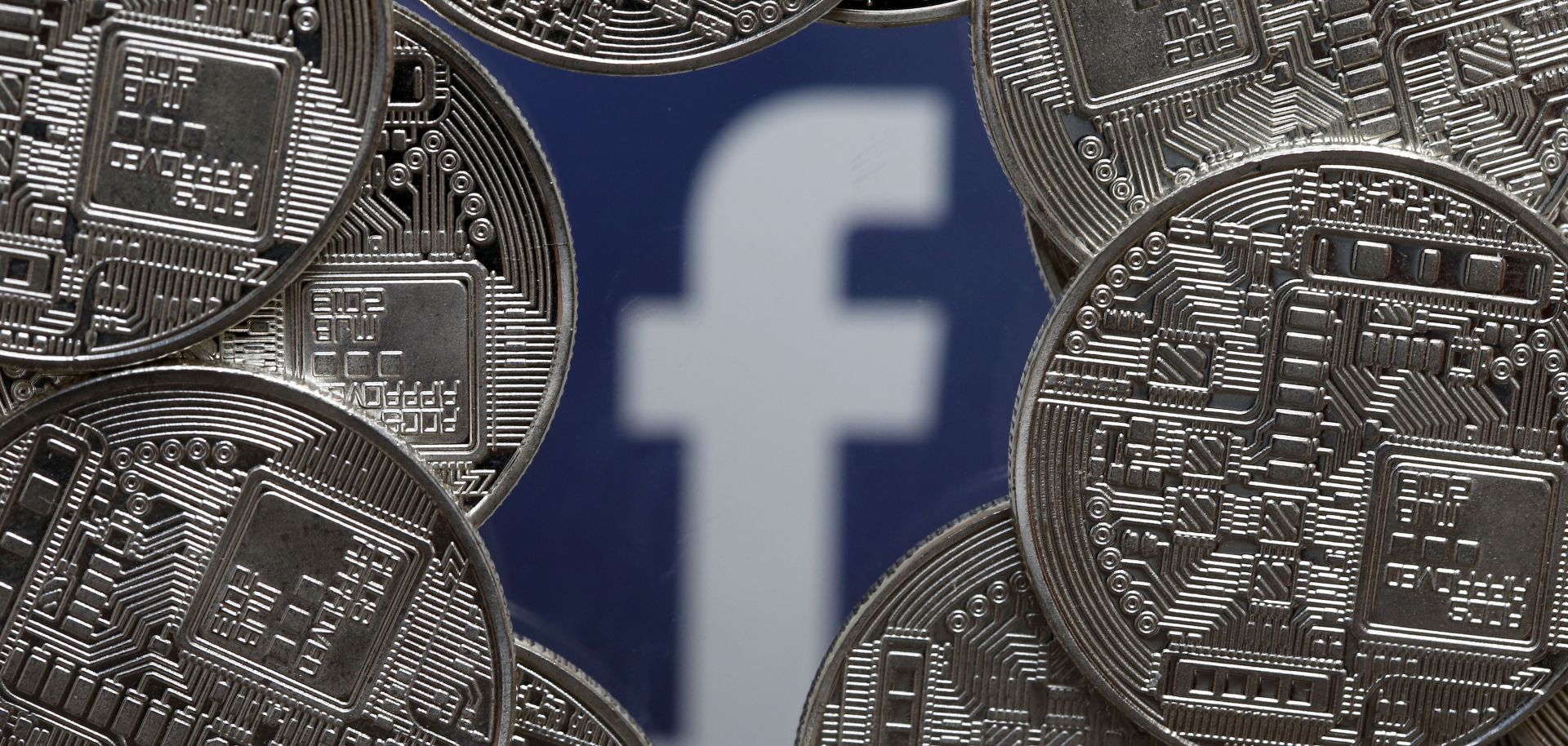ASSESSMENTS
For Facebook’s Cryptocurrency, the Well May Already Be Poisoned
Aug 15, 2019 | 09:30 GMT

On June 18, Facebook announced the details of its cryptocurrency called Libra, which is set to launch in 2020. The universal currency aims to allow users to buy products or services from Facebook-owned platforms including Messenger, Instagram and WhatsApp -- rivaling established payment systems such as Google Pay, Apple Pay and PayPal.
(Chesnot/Getty Images)
Highlights
- Facebook's new Libra coin is asset-backed and runs on a restricted network, which could make it as stable as a major currency — setting it apart from other, much more volatile cryptocurrencies like Bitcoin.
- The social media giant's negative political reputation, however, will influence Libra's reception in key markets such as the United States, Germany and India.
- This will likely create a hostile regulatory environment toward Libra, which will not only affect its rollout in 2020 but could have detrimental repercussions for the cryptocurrency field at large.
Subscribe Now
SubscribeAlready have an account?
